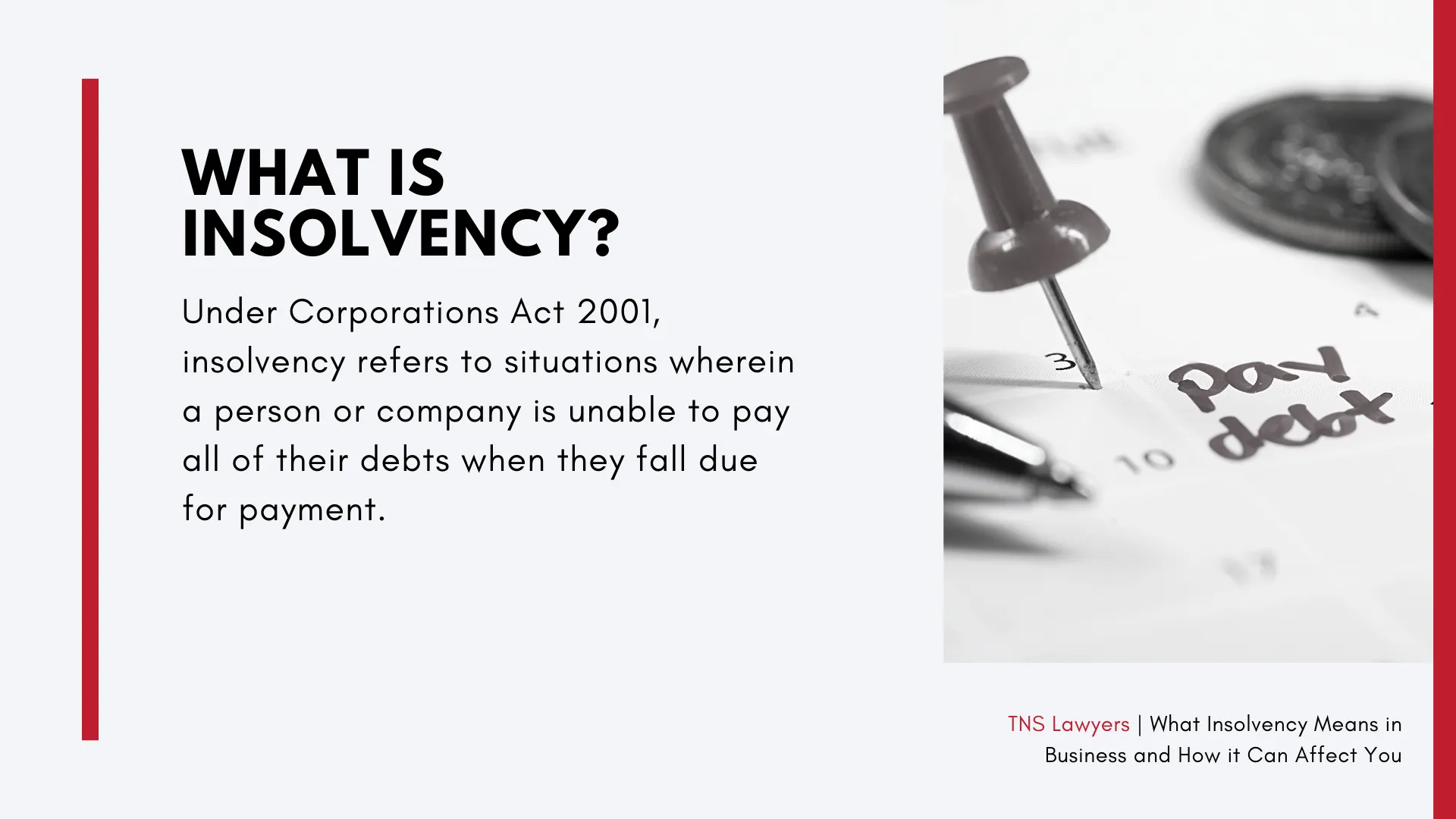About Insolvency Practitioner
About Insolvency Practitioner
Blog Article
Fascination About Insolvency Practitioner
Table of ContentsWhat Does Insolvency Practitioner Mean?The 25-Second Trick For Insolvency PractitionerThe 6-Minute Rule for Insolvency PractitionerThe Insolvency Practitioner StatementsThe 45-Second Trick For Insolvency PractitionerInsolvency Practitioner Things To Know Before You BuyExcitement About Insolvency Practitioner
Insolvency is when responsibilities are above the worth of the company, or when a debtor can not pay the financial obligations they owe. A business can become financially troubled due to a variety of circumstances that bring about poor cash money flow. When confronted with insolvency, a service or person can call creditors directly and restructure financial obligations to pay them off.
Company owners might get in touch with creditors straight and restructure financial obligations into more convenient installments. Lenders are typically responsive to this technique because they want to be repaid and prevent losses, even if the payment is on a postponed timetable.
The proprietor creates a proposition detailing just how the financial obligation might be restructured utilizing expense decreases or various other prepare for assistance. The proposal shows creditors exactly how business might produce adequate capital for profitable procedures while paying its financial obligations. Typically, a forgiven debt may be thought about revenue by the Irs (IRS).
Insolvency Practitioner Fundamentals Explained
When an organization needs to pay enhanced costs for products and services, the firm passes along the cost to the customer. Instead of pay the raised expense, many customers take their service in other places so they can pay much less for a service or product. Shedding clients causes losing revenue for paying the company's creditors.
When operations stop, so does the company's revenue. Some business become insolvent since their products or solutions do not advance to fit customers' transforming requirements.
5 Simple Techniques For Insolvency Practitioner
Expenditures exceed incomes and bills remain overdue. Sorts of insolvency consist of cash-flow insolvency and balance-sheet bankruptcy. Cash-flow insolvency takes place when a firm has the properties to cover their debts but they are in the incorrect form, such as property instead of liquid funds. Balance-sheet insolvency, on the various other hand, suggests an absence of properties in any type of type to cover financial obligations.
The internal revenue service states that a person is insolvent when the overall responsibilities surpass total properties. Insolvency Practitioner. A personal bankruptcy, on the other hand, is a real court order that illustrates just how a bankrupt person or organization will repay their lenders, or just how they will certainly sell their assets in order to make the repayments
Insolvency Practitioner Can Be Fun For Anyone
When a firm or person is insolvent, they can not satisfy their monetary obligations. Insolvency is not the very same as personal bankruptcy, although a business that has become insolvent might submit for personal bankruptcy. Bankruptcy is the state of not being able to pay your responsibilities while bankruptcy is a legal More about the author process to release your debts.
Comprehending the aspects that can bring about insolvency, such as overspending, can help you prevent insolvency and its effects.
Some Of Insolvency Practitioner
It is well known that supervisors and police officers of corporations (and supervisors of minimal obligation firms) owe fiduciary tasks to their organizations and their investors (or participants). These fiduciary responsibilities are defined by state laws and, though there are variations from state to state, they generally consist of a duty of commitment and a responsibility of treatment.
The responsibility of treatment requires directors and officers to work out persistance, to make educated choices, and to act in great confidence so that their actions remain in the most effective rate of interest of the company. Though past the scope of this discussion, some states permit these duties to be restricted either by so noting in the organizational documents or abiding by various other needs.
See This Report about Insolvency Practitioner

Be careful regarding offering shareholders favoritism at the expenditure of lenders (e.g., authorizing and moneying a reward or a supply redemption). Take care regarding special treatment between courses of investors. Make affordable efforts to discover all the facts before taking a specific program of activity; directors need to truly believe that any decisions made remain in the best passions of the corporation in its entirety (i.e., choices will certainly be examined in hindsight due to the result of such activities on the corporation).
In any kind of bankruptcy or bankruptcy case, repayments made to specific financial institutions at the cost of various other financial institutions can be clawed back, especially if there is some link in between the company and the i thought about this financial institution. Think about suggesting at a yearly stockholder conference (or any other meeting of shareholders) a resolution affirming that all previous service decisions and activities taken by the directors and policemans of the firm were taken in great faith after an exercise of sensible care.
An Unbiased View of Insolvency Practitioner
Completely disclose any individual or business relationships with celebrations on the other side of purchases entailing the firm to stay clear of the appearance of a dispute of rate of interest. In evaluating potential fund raising deals or a sale of possessions of the troubled corporation, understand that these transactions might be inspected later on taking into account any kind of subsequent growth of supervisors' fiduciary responsibilities to consist of creditors.
Report this page